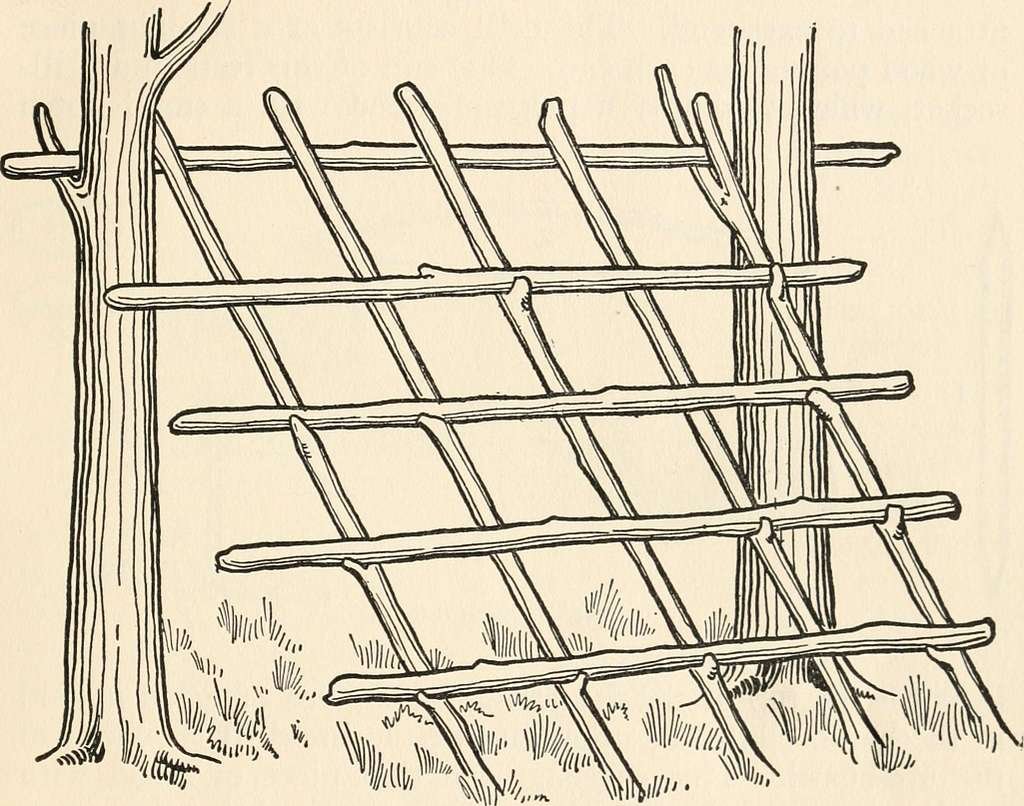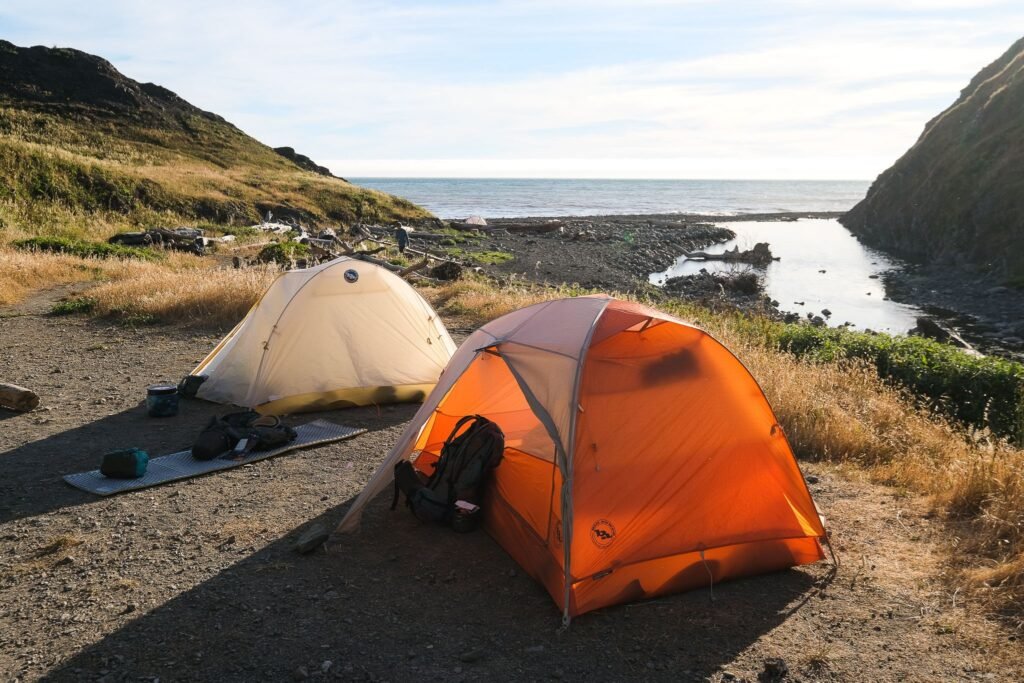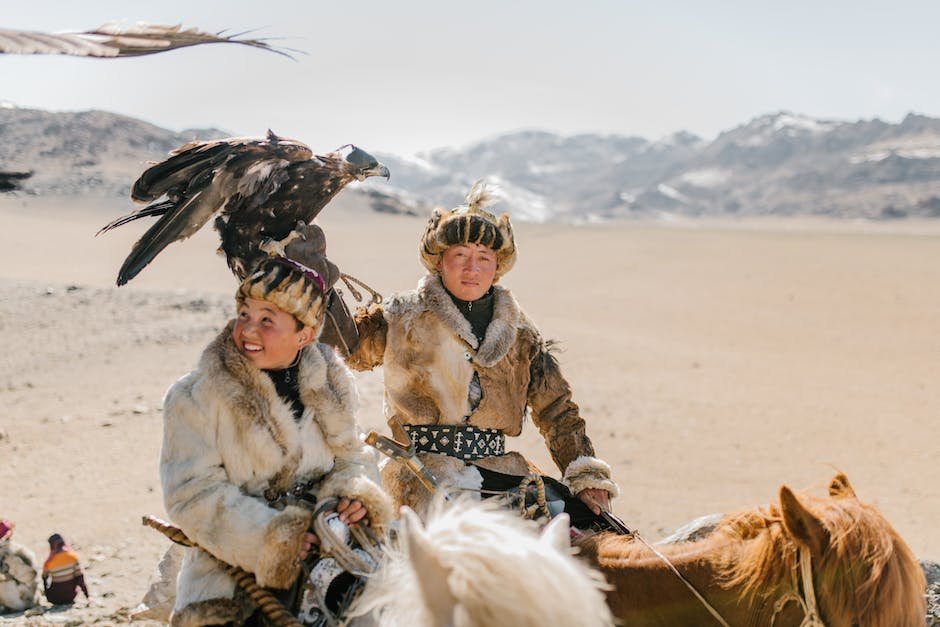Now Reading: Wilderness Bartering: Skills and Items for Trade
-
01
Wilderness Bartering: Skills and Items for Trade

Wilderness Bartering: Skills and Items for Trade
The steam rising from your hot pot of pine needle tea mingles with the cool morning mist, as you perch on a moss-covered log, taking in the serenity of the wilderness around you. Solitude, seclusion, and self-sustainability – these are the reasons you embarked on this daring adventure into the wilderness. But as you venture further away from civilization, you realize that surviving in these wild landscapes requires more than just your innate survival skills. To thrive, you must tap into the ancient art of wilderness bartering, a time-honored tradition of exchanging goods and knowledge with fellow wanderers. In this article, we delve into the intricate world of wilderness bartering, uncovering the essential skills and valuable items that can act as your currency when the only sounds you hear are rustling leaves and the distant howl of a wolf. So, grab your backpack and join us on a journey of discovery, where the exchange of goods brings people together, enhances survival, and rekindles a sense of community in the untamed embrace of nature.
Table of Contents
- Exploring the Art of Wilderness Bartering
- Understanding the Key Skills for Successful Wilderness Bartering
- Essential Items for Successful Wilderness Bartering
- Building Connections through Wilderness Bartering
- Navigating Challenges in Wilderness Bartering
- Q&A
- Final Thoughts
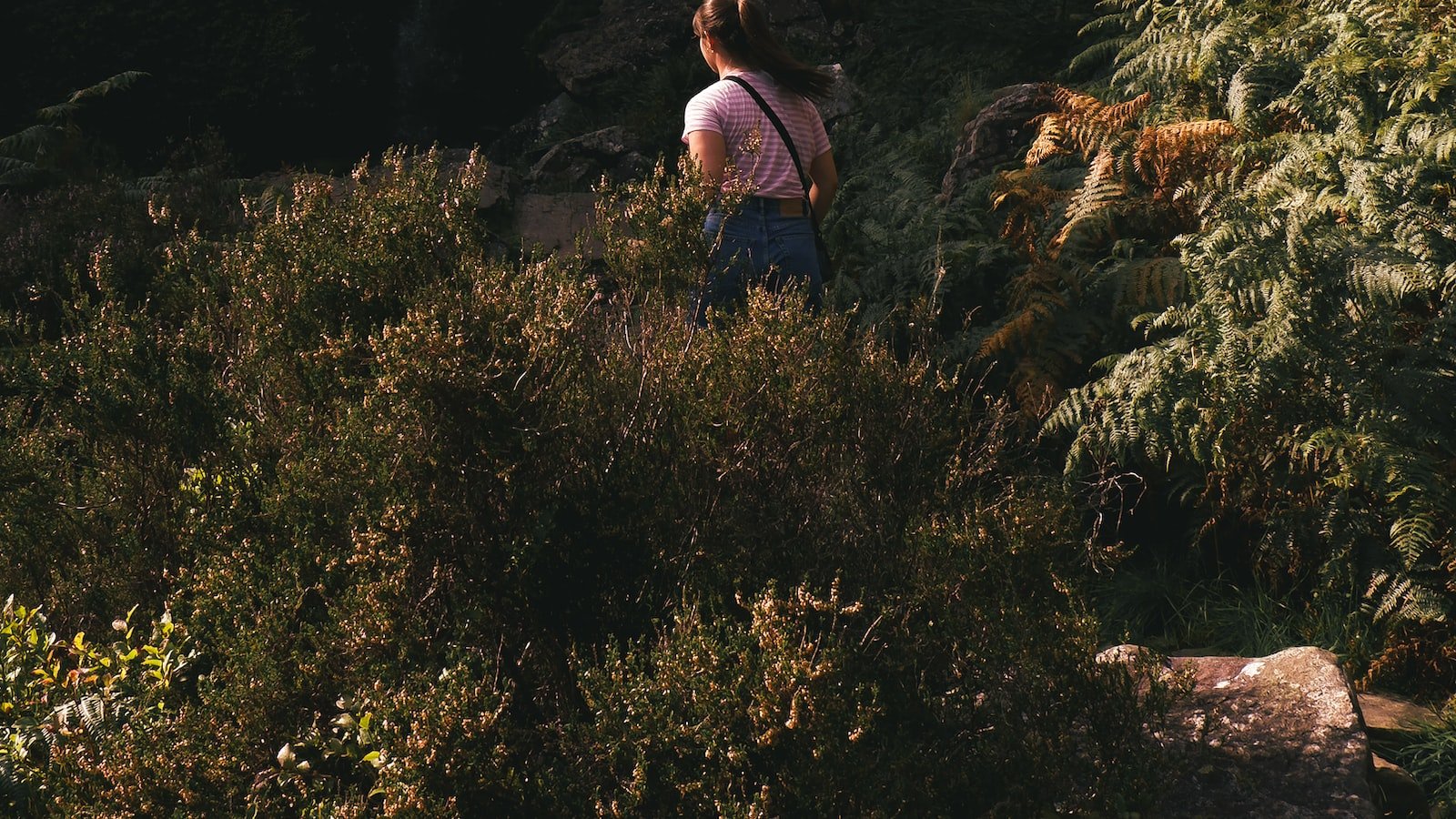
Exploring the Art of Wilderness Bartering
Bartering has been a timeless art throughout human history, and when it comes to the wilderness, it takes on a whole new level of ingenuity and resourcefulness. In the vast expanses of nature, where modern comforts are stripped away, the art of wilderness bartering thrives as a means of survival, connection, and even adventure.
When immersed in the wilderness, the value of goods and services takes on a new perspective. Items that may seem inconsequential in everyday life suddenly become highly sought-after commodities. A simple box of matches, a roll of duct tape, or a bottle of purified water can hold immense worth and serve as valuable bargaining tools. The ability to recognize the value in limited resources and negotiate fair exchanges is a skill honed by those who embrace the art of wilderness bartering.
In the wild, bartering transcends simple economic transactions. It becomes a way to forge connections and build relationships with fellow adventurers and local communities who may call the wilderness their home. Through this ancient practice, strangers become friends, shared experiences are shared treasures, and the pursuit of survival becomes a collective endeavor.
The Art of Wilderness Bartering: A Survivalist’s Guide
- Recognizing Valuable Resources: In the wild, the value of supplies can change dramatically. Items like fire-starting tools, non-perishable food, and medical supplies are in high demand. Understanding the scarcity and usefulness of different resources is crucial.
- Building Trust and Relationships: In a world where trust is often hard to come by, wilderness bartering provides an opportunity to form bonds with like-minded individuals. By respecting others’ needs and being reliable in agreements, lasting relationships can be forged.
- Adapting and Improvising: When specific items are scarce, creativity becomes essential. As a savvy wilderness barterer, you must be willing to think outside the box and offer unique services or repurpose items in unexpected ways.
- Embracing the Adventure: Far from the convenience of modern commerce, wilderness bartering allows for a more dynamic and adventurous experience. The art of acquiring goods and services through mutual exchange adds an element of excitement and challenge to every expedition.
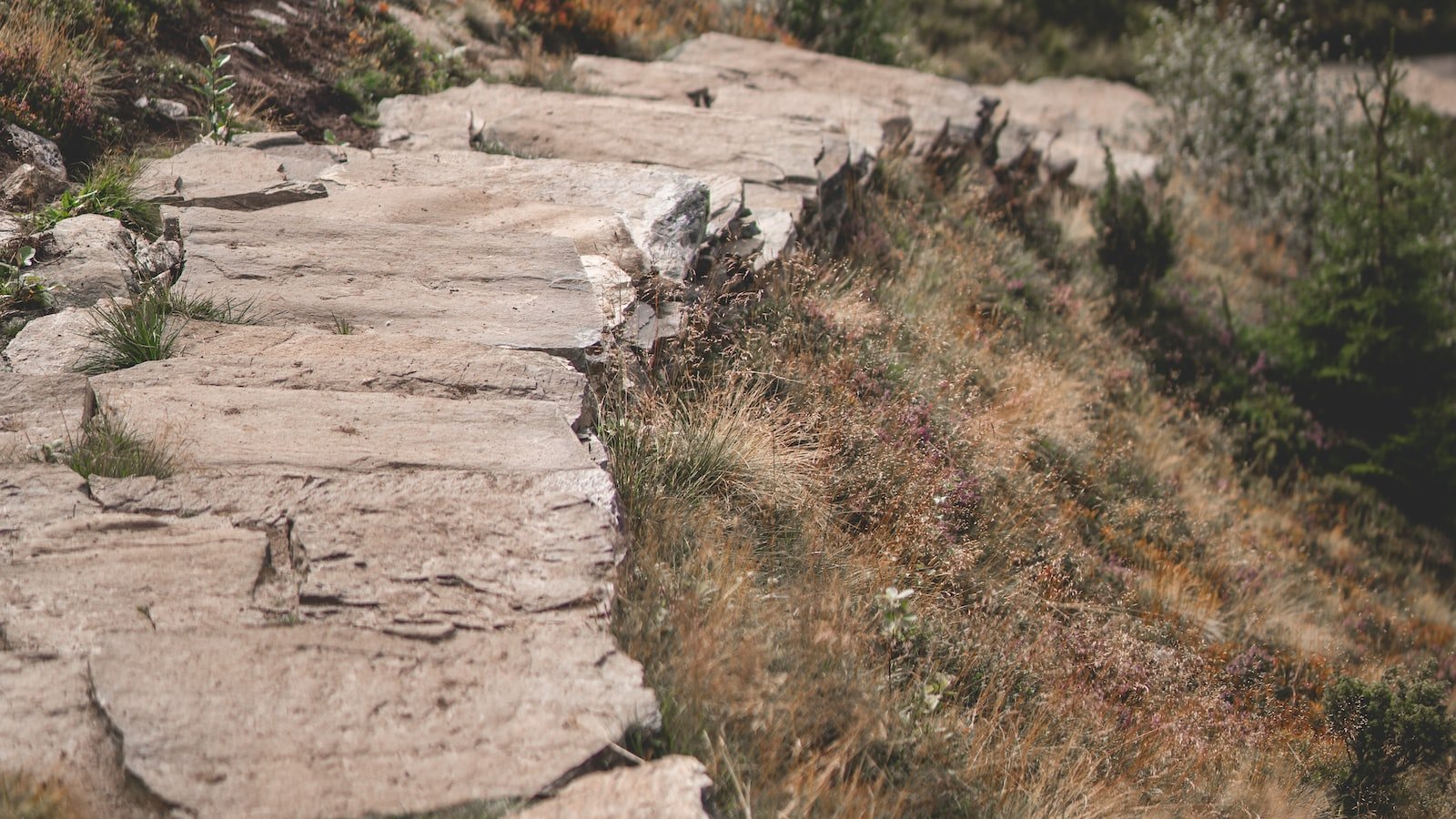
Understanding the Key Skills for Successful Wilderness Bartering
When venturing into the wilderness, having the skills necessary for successful bartering can be a game-changer. In a world removed from the convenience of modern currency, being able to exchange goods and services can mean the difference between thriving and merely surviving. Here are the essential skills to master:
- Resource Assessment: Being able to assess the value and usefulness of resources in the wilderness is crucial. Developing an eye for identifying valuable items such as firewood, fresh water sources, edible plants, and medicinal herbs can provide a strong foundation for bartering effectively.
- Communication: Building effective communication skills is essential when engaging in wilderness bartering. The ability to clearly articulate needs, negotiate terms, and understand the desires of the other party can help create fair and mutually beneficial exchanges. Remember, communication is not limited to language but also includes gestures, signals, and nonverbal cues.
- Adaptability: In the unpredictable wilderness, situations can quickly change, and being adaptable is key to successful bartering. Flexibility allows one to shift strategies, adjust expectations, and find creative solutions when unforeseen circumstances arise.
- Barter Item Knowledge: Understanding the intrinsic value of various items commonly accepted for trade is crucial. Acquire knowledge about sought-after resources, such as tools, durable clothing, survival kits, or practical skills like first aid and shelter building. This information gives you an edge and ensures that your barter items are in demand.
- Honesty and Fairness: Building trust through honesty and fairness should be at the core of every bartering exchange. Establishing a reputation as a trustworthy barterer can lead to long-lasting relationships and a valuable network of resources in the wilderness.
Mastering these key skills can empower wilderness adventurers to thrive in a world where bartering is the currency of choice. By developing a diverse skill set and cultivating the right mindset, one can navigate the untamed lands with confidence, knowing that survival and prosperity are within reach.
Essential Items for Successful Wilderness Bartering
When venturing into the wilderness, being prepared is key to survival. One important aspect to consider is the art of bartering to acquire necessary items. These are the essential items to bring for successful wilderness bartering:
- Multi-purpose tools: A Swiss Army knife or a versatile multi-tool can be a valuable asset for bartering. It serves various purposes and can be traded for other valuable items like food, fire-making equipment, or even medical supplies.
- Fire-starting equipment: In the wilderness, fire is not only crucial for warmth but also for cooking and purifying water. Carrying a quality fire starter, matches, or a portable lighter can be highly desirable for potential trade partners.
- First aid supplies: Accidents can happen in the wild, and having a well-stocked first aid kit is not only essential for personal safety but can also be bartered for other necessary resources such as food, shelter materials, or even navigation tools.
- Water purification tools: Clean water is vital for survival, and in remote areas, it might not always be readily available. Bringing water purification tablets, a filter, or a portable UV sterilizer can be invaluable commodities for trade and enhance your chances of acquiring essential supplies.
- Non-perishable food items: While hunting and gathering can provide sustenance, having extra non-perishable food items like energy bars, gourmet jerky, or dehydrated meals can attract potential traders who might be in need of a quick meal or backup provisions.
- Navigation and communication devices: In the vast wilderness, becoming disoriented is a real danger. Carrying GPS devices, compasses, or signaling tools such as a whistle or a mirror can serve both personal safety and allow for potential trades with those seeking assistance with navigation or emergency communication.
By packing these essential items, you not only increase your chances of survival in the wilderness but also arm yourself with invaluable assets for successful bartering. Remember, in the world of bartering, adaptability and resourcefulness are your best allies.
Building Connections through Wilderness Bartering
When venturing into the wild, it’s essential to be self-reliant and rely on your resourcefulness in order to survive. One fascinating aspect of wilderness survival is the art of bartering, a centuries-old practice that fosters connections between individuals in remote areas. In these rustic settings, where modern currency holds no value, bartering becomes a crucial skillset for forging relationships, obtaining essential goods, and experiencing the truest sense of community.
Bartering in the wilderness is an organic process of exchanging goods or services without the involvement of money. It allows individuals to trade items they possess but no longer need for something they require, creating a mutually beneficial exchange. The absence of currency highlights the resourcefulness and creativity of those involved, as they find innovative ways to negotiate and satisfy their needs.
Through wilderness bartering, people not only obtain vital supplies like food, tools, or shelter materials, but they also build connections with their fellow adventurers. In these rugged environments, trust and collaboration become paramount. Bartering fosters a sense of camaraderie as individuals interact, forging relationships based on mutual respect, shared experiences, and a common goal of survival. It is through this ancient practice that the significance of human connection and community resilience becomes truly tangible.
In a world dominated by digital transactions and virtual connections, wilderness bartering brings us back to our roots - relying on human interactions and the natural resources around us. It reminds us of the innate ability we possess to communicate, collaborate, and support one another. So next time you find yourself exploring the great outdoors, embrace the art of bartering and discover the powerful connections it can build.
Navigating Challenges in Wilderness Bartering
When venturing into the wilderness, being able to navigate challenges in bartering is crucial for survival. Without access to traditional currency or modern amenities, wilderness bartering becomes an essential skill. Here are some tips to help you navigate the challenges:
- Build Relationships: In the wild, trust and community are vital. Take the time to connect with fellow adventurers and locals, establishing relationships based on mutual support and respect. These bonds will become the foundation for successful bartering transactions.
- Identify Valuable Items: Determine what items hold value in the wilderness. While certain goods might be in high demand, consider the practicality and versatility of those items. Think beyond the obvious necessities and consider items that can serve multiple purposes, such as fire starters, hand tools, or water purification tablets.
- Master the Art of Negotiation: Negotiation skills are a must when it comes to bartering in the wilderness. Practice active listening, showing empathy, and understanding both parties’ needs. Be open to compromise and always strive for a win-win outcome.
- Stay Informed: Keep up-to-date on local news, events, and trends that might impact the wilderness bartering landscape. Stay connected with the community and be aware of any changes in demands, scarcities, or new valuable items that may arise.
Remember, wilderness bartering is not just about exchanging goods but also building trust and fostering relationships. With these skills, you can navigate the challenges that come your way while forging connections that enrich your wilderness experience.
Q&A
What is wilderness bartering and why is it important?
Wilderness bartering is the practice of trading skills and items in a wilderness setting. It is important because it promotes self-reliance, fosters community bonding, and helps individuals acquire what they need to survive in the wild.
What are some essential skills for wilderness bartering?
Essential skills for wilderness bartering include fire-starting techniques, foraging knowledge, first aid training, navigation skills, and tool-making abilities. These skills are highly valuable in a wilderness setting and can be exchanged for other necessary goods or services.
What items are commonly traded in wilderness bartering?
Commonly traded items in wilderness bartering include food, water, camping gear, tools, handmade crafts, medicinal plants, firewood, and shelter materials. These items are typically exchanged based on their practical value and usefulness in the wilderness.
Can you barter for services or knowledge as well?
Absolutely! In wilderness bartering, services like hunting, fishing, teaching survival techniques, and providing physical labor can be exchanged for other services or goods. Knowledge-sharing is also highly valued, as individuals can exchange expertise in various areas, like plant identification or navigation skills.
How does wilderness bartering differ from traditional forms of trade?
Unlike traditional trade, wilderness bartering depends on the immediate needs and resources available in a wilderness setting. It often involves more personal exchanges and relies heavily on interpersonal relationships and trust between individuals.
What are some potential challenges of wilderness bartering?
Some challenges of wilderness bartering include finding individuals with compatible needs and skills for trading, negotiating fair exchanges, and ensuring the quality of items or services being traded. Additionally, geographical isolation and limited resources can also pose challenges.
Is wilderness bartering legal?
The legality of wilderness bartering varies depending on the specific location and jurisdiction. It is important to research and understand the local laws and regulations to ensure compliance. In some cases, permits or licenses may be required for certain activities, such as trading wild-caught food or selling handmade goods.
How can one get started with wilderness bartering?
To get started with wilderness bartering, it’s important to develop valuable skills, build relationships with like-minded individuals, and identify the needs and resources within your wilderness community. Participating in local outdoor clubs, survival courses, or attending wilderness gatherings can also provide opportunities to connect with potential trading partners.
Final Thoughts
As we bring this wild journey to an end, we hope you’ve gained a newfound appreciation for the art of wilderness bartering. In a world buzzing with digital transactions and impersonal exchanges, it’s not often we get the chance to reconnect with our primal instincts and unravel the mysteries of trading in the untamed wilderness.
Throughout this article, we’ve uncovered the multifaceted skills and invaluable items that can be exchanged amidst the vast and awe-inspiring landscapes. From the flickering flames of fire-starting mastery to the medicinal wonders of plant identification, every skill holds the potential to be transformed into a prized commodity.
Just imagine the satisfaction of bartering your freshly caught fish for a knowledge-filled session on primitive navigation, or the elation of swapping your skillfully crafted leather pouch for a much-needed water purification technique—a dance of exchange that brings people closer, intertwining their fates in a brief but memorable encounter.
While the world may have forgotten the treasures that lie hidden within these skills, let us not underestimate their power. From the swift yet graceful whittling of wood to the tactile precision of natural cordage making, these mesmerizing talents bear testament to the crafts of our ancestors, weaving a tapestry of resilience, ingenuity, and resourcefulness.
Let us not forget the value of the items that inhabit this lush wilderness either. Every moss-covered stone, delicate feather, or vibrant healing herb has the potential to be the key that unlocks a door to newfound knowledge, companionship, or sustenance. It is in these hidden treasures that we discover the true currency of nature—a currency that cannot be artificially inflated or devalued by human whims.
Though modern society may attempt to shield us from the enchantments of wilderness bartering, the allure remains. It whispers in the rustling leaves, dances on the water’s surface, and lingers in the smoky scent of a well-made campfire. It is a timeless dance, one that transcends language barriers and cultural divides, inviting us all to partake in the exchange of wisdom and camaraderie.
So, dear reader, as you venture forth into the untamed realms of our natural world, armed with newfound knowledge and the seed of curiosity, remember the art of wilderness bartering. May it guide your path, nourish your spirit, and connect you to the wild in ways you never thought possible. Embrace the dance, for within it lies the heart and soul of an ancient tradition, waiting to be awakened by the curious and bold. Safe travels, and may the treasures of the wilderness be forever in your favor.
As an affiliate, my content may feature links to products I personally use and recommend. By taking action, like subscribing or making a purchase, you’ll be supporting my work and fueling my taco cravings at the same time. Win-win, right?
Want to read more? Check out our Affiliate Disclosure page.

